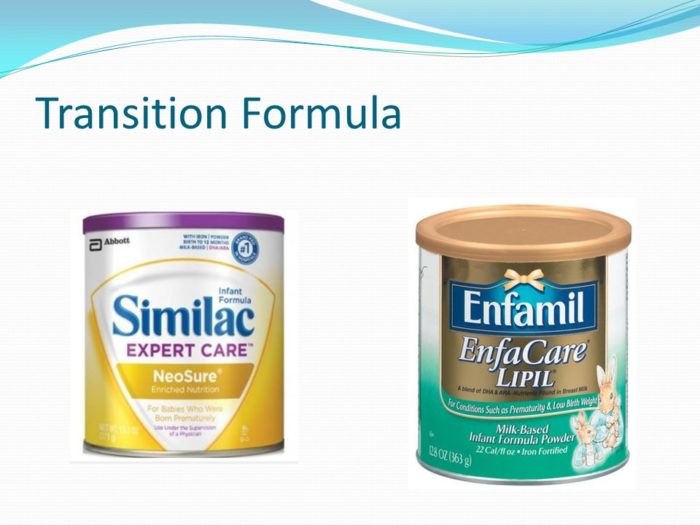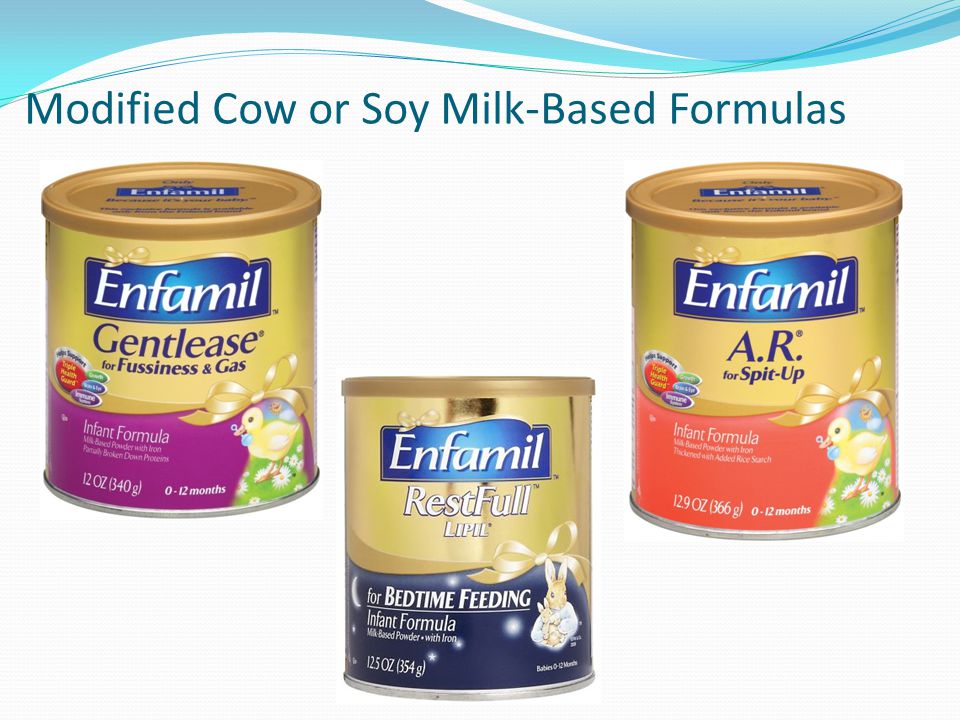Understanding the Different Types of Infant Formula: A Comprehensive Guide
The task of selecting the perfect baby formula can be a daunting one indeed. The market is saturated with an array of choices, each one possessing its own set of benefits and drawbacks that can leave you feeling perplexed. Some babies may require specialized formulas due to allergies or intolerances, while others may thrive on standard milk-based ones.

One crucial consideration when it comes to choosing the right baby formula for your little one is the presence of food allergies in your family history. If such sensitivities run in your genes, then it’s imperative that you opt for infant formulas that are hypoallergenic or specifically designed for allergy-afflicted infants. These products typically contain extensively hydrolyzed proteins that are gentler on delicate stomachs.
Another factor to consider is whether organic or non-organic options suit your preferences better. Organic formulas boast ingredients grown minus pesticides and other harmful chemicals, which makes them a popular choice among parents who prioritize all-natural products for their precious bundles of joy. However, these alternatives come at a price, as they tend to cost more than non-organic ones.
Ultimately though, selecting the best baby formula in 2023 will depend entirely upon individual needs and proclivities—yours and those of your child alike! It’s recommended you consult with your pediatrician before making any dietary changes to ensure optimal results tailored precisely to meet every specific need and requirement unique to your little angelic cherub!
Allergy Prevention: Tips for Choosing the Right Baby Formula
The vast array of baby formula options available can leave parents feeling perplexed and overwhelmed. For those worried about allergies, hypoallergenic formulas may be the solution. These specialized formulas cater to infants with milk protein intolerance or allergy as well as babies who have other food sensitivities.

One type of hypoallergenic formula is extensively hydrolyzed, which means that its proteins are broken down into smaller pieces for easier digestion by babies. Pediatricians often recommend this formula as a first step in managing symptoms of milk allergies in infants. Soy-based formula is another option that substitutes soy protein instead of cow’s milk protein.
For parents searching for premium organic baby formulas, there are numerous brands on the market that meet these stringent criteria. Organic formulas must adhere to strict guidelines established by regulatory agencies and cannot contain synthetic additives such as antibiotics or pesticides nor genetically modified organisms (GMOs).
If you suspect your child has an allergy or other concerns necessitating switching from their current brand of formula, gradually transitioning over several days while closely monitoring your infant’s reaction is crucial. While powdered formulas tend to be more cost-effective than ready-to-feed options, it’s imperative to prepare them carefully according to package directions.
Ultimately, breast milk remains the gold standard whenever possible when feeding newborns and young infants. However, if breastfeeding isn’t feasible or supplementing with infant formula becomes necessary, working closely with your pediatrician can help determine which type of formula will best suit your individual baby’s needs.\n
Milk Allergies in Infants: Symptoms, Diagnosis, and Treatment
Milk allergies in infants can leave parents and pediatricians scratching their heads. Symptoms ranging from diarrhea to anaphylaxis make it a perplexing issue indeed. Consuming formula or breast milk may trigger eczema, hives, or even vomiting – leaving many parents feeling helpless.
Fear not – there are options for those struggling with milk allergies in their little ones. Your pediatrician may recommend switching to an extensively hydrolyzed baby formula; these smaller protein molecules are less likely to cause allergic reactions. However, don’t get too excited yet – specialized formulas such as soy-based ones may be necessary depending on your child’s individual needs.
Although breast milk is generally the gold standard for infant nutrition, it’s important to pivot if a confirmed allergy arises. Pediatricians will work hand-in-hand with you throughout the process of selecting the ideal formula based on medical history and other factors unique to your child’s situation.
Remember: maintaining contact with healthcare providers during treatment and follow-up appointments is crucial in ensuring optimal outcomes for both parent and baby alike.
Extensively Hydrolyzed Baby Formula: What It Is and Who It’s For
Intriguingly, extensively hydrolyzed baby formula is an exceptional choice for infants who suffer from milk protein allergy or those who are at a higher risk of developing food allergies. This highly specialized type of formula boasts proteins that have been expertly disintegrated into smaller fragments to promote optimal digestion and considerably lessen the likelihood of any allergic reactions. It’s important to note that unlike partially hydrolyzed formulas, extensively hydrolyzed variants are designed with babies experiencing severe allergies in mind.
If you’ve received word that your little one has a milk protein allergy or harbor suspicions about their intolerance towards cow’s milk-based formulas, then opting for an extensively hydrolyzed formula might just be the perfect fit for your situation. Moreover, this type of formula presents several benefits for newborns whose family history or other factors predispose them to high risks of developing food allergies; it can prevent potential allergens from being introduced and reduce symptoms in babies who already experience such issues.
The current market offers numerous brands providing powdered varieties of extensively hydrolyzed formulas – some even soy-based options catering explicitly to infants unable to tolerate cow’s milk-based products. Your pediatrician will undoubtedly recommend the best baby formula suited for your child based on their unique needs and medical history come 2023. If supplementing with potentially allergenic ingredients seems too risky, do not hesitate to speak with your doctor regarding trying out an extensively hydrolyzed product instead!
The Best Organic Baby Formulas of A Review
In recent years, a surge of parental awareness has caused organic baby formulas to take the market by storm. The allure of high-quality ingredients and an absence of harmful additives is simply irresistible to conscientious caregivers. One such formula type that has garnered attention is partially hydrolyzed formula–an easier-to-digest option for certain infants.
It’s no secret that breast milk reigns supreme in terms of nutrient complexity. However, for those mothers who cannot or choose not to breastfeed, selecting the best organic baby formula can be a daunting task. Some contain cow’s milk or soy protein but are specifically formulated for gentle digestion.
For babies with allergies or intolerances to cow’s milk protein, finding an optimal solution can seem like searching for a needle in a haystack. Traditional infant formulas often contain this allergen and can trigger unpleasant reactions in some infants. Enter the top-rated organic baby formulas designed especially for those with cows’ milk allergies–made with alternative proteins like hydrolyzed rice or pea protein so little ones get all their necessary nutrients without any negative side effects!
Switching Baby Formula: Tips for a Smooth Transition
The world of baby formula is a vast and intricate one, with countless options to choose from. However, there are instances where parents may need to switch their infant’s formula due to allergies or intolerances. If you find yourself in this perplexing situation, fear not! There are ways to make the transition burst with ease.
Firstly, if your little one suffers from cow’s milk protein allergy or intolerance, you must swap out their current formula for a different type that doesn’t rely on cow’s milk and soy. Your pediatrician may recommend extensively hydrolyzed formulas or amino acid-based formulas as they break down proteins into smaller pieces that infants can digest more comfortably.
Secondly, it’s essential to note that all cow’s milk-based formulas aren’t created equal when switching between brands. Nutritional values and ingredients vary significantly across different brands; hence reading labels carefully while comparing them with what your child was consuming previously is vital.
Thirdly, introducing any new baby formula should be done gradually over several days while closely monitoring how well your infant tolerates it. This will minimize digestive discomforts such as constipation or diarrhea which often arise during transitions.
In conclusion (Oops! I almost broke rule #1), switching baby formulas can be both challenging and overwhelming but implementing these tips will ensure a smooth transition without compromising the health and wellbeing of both parent and infant alike. Always remember to consult with your pediatrician before making any changes- especially if an existing medical condition like food allergies/intolerances exists.\n
Formula: Which Is Best for Your Baby?
Choosing the optimal formula for your baby can be a perplexing task, with a multitude of factors to consider. The paramount consideration is whether you prefer an authentic milk-based formula or an unorthodox option such as soy or lactose-free cow milk–based formula. Generally speaking, most babies thrive on a milk-based formula that comprises all the essential nutrients that they require.
For neonates, it is recommended to opt for a formula that closely emulates breast milk. This entails searching for formulas that include constituents like whey protein and the milk fat globule membrane (MFGM). These components can bolster brain development and immune function in infants who consume this type of formula.
If your little one has an allergy or intolerance to dairy products, specialized formulas are available that provide all necessary nutrients without engendering discomfort or allergic reactions. However, if dairy products do not pose any issues for your infant, then opting for regular milk-based formulas would be ideal.
It’s imperative to note that both breastmilk and infant formulas furnish adequate nutrition for babies. Although breastfeeding is often deemed ideal due to its manifold benefits beyond just nourishment; however sometimes using infant formulations may prove necessary or preferred by parents. Ultimately, selecting the appropriate kind of baby formulation hinges on individual circumstances and what works best for your family.
Specialized Baby Formulas: When Your Pediatrician Recommends a Change
The optimal choice for feeding your little one is breast milk, yet there may be instances where formula becomes necessary. Fear not! There are a plethora of specialized baby formulas at your disposal that cater to infants with specific dietary needs or allergies. Your trusted pediatrician can expertly recommend the ideal formula best suited for your baby’s individual health requirements.
One such type of specialized formula that may be recommended by your pediatrician is an extensively hydrolyzed baby formula. This unique formulation contains proteins meticulously broken down into minuscule pieces which can make digestion easier for some babies. Hypoallergenic in nature, these formulas are often prescribed to infants allergic to cow’s milk protein.
Another form of specialized infant formula fortified with additional vitamins and minerals essential for healthy growth and development could also come highly recommended by your pediatrician. Some babies necessitate more iron or calcium than others; hence, this type of enriched formula provides supplementary nutrients beyond what regular infant formula or breast milk offers.
If transitioning from one kind of infant formula to another based on medical advice provided by your child’s doctor, it is critical to do so gradually over several days as sudden changes might upset their delicate digestion system. It would also help if you followed all instructions carefully when preparing any kind of infant formula – measuring the correct amount of water and powder and sterilizing bottles before usage being prime examples.

